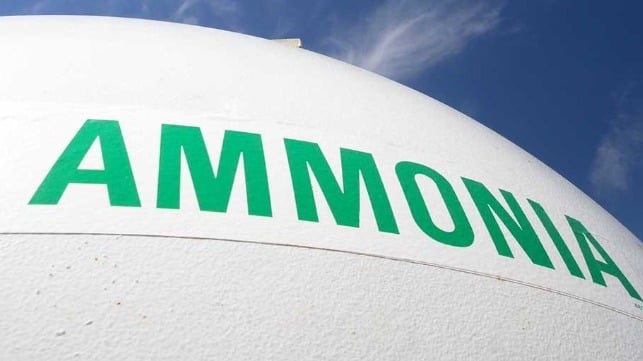Survey: Most Seafarers Would Sail on Ammonia-Fueled Ships - With Training

The Maersk Mc-Kinney Moller Center for Zero Carbon Shipping has released a new study of industry views on ammonia as a marine fuel, including ammonia's much-discussed safety profile. A solid majority of the seafarers who responded to the questionnaire said that they would be willing to sail on ammonia-fueled vessels, though they also wanted more information and training on how to work safely with the new fuel. The technology could be available as soon as 2025-26, so the signs of acceptance among crewmembers may come as a relief to early adopters.
The survey revealed that most respondents (afloat and ashore) have a good understanding of the characteristics of ammonia, including its toxicity. Out of more than 2,000 respondents, about 1,400 were seafarers, including about 1,000 engineers and deck officers. 59 percent of all respondents said that they would be willing to work with ammonia, 24 percent were unsure, and just 12 percent said that they would not.
Of seafarers, deck officers and respondents under 40 showed more acceptance than engineers and respondents over 60. Of shoreside personnel, the most enthusiastic respondents were ship managers and insurers, who showed much higher than average willingness to accept ammonia (75 percent). One explained their reasoning: shipping is already used to gaseous/high flashpoint fuels, and has not had any high-profile problems.
"When methanol, LPG, and LNG do not leak in the engine room, then why will ammonia leak? Similarly, LNG and LPG are bunkered at much lower temperatures and, to date, there have been no incidents of leaks during transfer or bunkering. Then why will it happen with ammonia?" commented one ship manager.
In written comments, seafaring respondents said that they want more training on the specifics of how to operate an ammonia-managed ship - for example, emergency response procedures, engine operations and maintenance and handling ammonia leaks on board. Shipowners view training as a key element of the green fuel transition, and the survey confirms that seafarers themselves want more information and preparation. (Some also want more compensation to offset the new perceived risks and technical complexity of ammonia.)
Seafarers' willingness to work on ammonia-fueled vessels also contrasted with managers' and owners' expectations. Large majorities of owners, operators, managers, flag state and class employees said that they expect crew reluctance to be a barrier to adoption of the fuel - but the numbers show that seafarers are willing, so long as the training is there. Shoreside crewing and training staff appeared to have a more accurate grasp of seafarer sentiment: a majority said that they expect no problems with finding crews.
One manager commented that the safety and suitability of switching to ammonia would vary by vessel type. Bulkers, which have the highest number of onboard safety incidents and fatalities in the global fleet, might not be the place to start, the respondent suggested.
"I would have less concerns with gas/chemical tanker crew. Safety culture still varies a lot across different ship types, I’d be worried with your average bulk carrier crew," the shim manager wrote. "Deep understanding of the topic and training would be required for safe handling, along with a well-implemented behavioral safety program."
